UK News
‘I looked at my hand and it was covered in blood’

Passengers have described blood-covered seats and attempting to protect themselves with a bottle after a mass stabbing on a LNER train left 11 people injured and needing hospital treatment. Two remain in a life-threatening condition.
Police met the Doncaster-London King’s Cross train as it made an unscheduled stop at Huntingdon in Cambridgeshire shortly before 20:00 GMT.
Hiding in buffet car
Alistair Day, who was travelling back to Hertford having watched Nottingham Forest, was on the train when the attack happened – having narrowly missed his original connecting service.
He joined others and hid in the train’s buffet carriage as a fellow passenger confronted a man with a knife.
“I was just by the buffet car. It was odd. I was at the end of the carriage. All these kids were running up and I thought it was like a prank – Halloween or students,” he said.
“Then they’re getting louder and louder any sorts of people with blood on them [appeared] and I thought, ‘Oh, bloody hell, this is not good.’
“I saw a guy flailing out – a fracas with arms going everywhere. I didn’t see him that well because there were people in front of him.
“My initial thought was I’m going to sit there and try and do something but I changed my mind.
“We all jumped up and everyone kept running but I was next to the buffet car and the guys in the carriage were trying to close up the shutters and everything.
“So I said, no, you’ve got to let us in here. So I jumped in there – there were about 12 of us in there.
“I was the first one in, so I was in the corner. A young woman who I spoke to afterwards was by the window and the guy was at the window with his knife trying to get in. Obviously we’d locked it by then.”
Joe, who was also travelling back from the Nottingham Forest v Manchester United match, said the scenes were “like something out of a movie”.
The 24-year-old, from Peckham in south-east London, said: “I was texting my friends about my plans for that night and then people came rushing through from the carriage, running through, saying, ‘You need to run, you need to run’.
“At first it didn’t really register what was going on.
“And then quickly, I just dropped my stuff and I started running along with them.
“And then I looked back, and I could see this guy – he was quite a tall, black male, and he had a bloodied knife.
“You just looked around and there was blood just everywhere.”
‘What if we run out of carriages?’
Joe continued: “We kept moving through the train. We could see him behind us coming through.
“The scariest thing was that I knew that because the stops at this stage of the journey are just Stevenage and King’s Cross there’s quite a lot of big distances between stops.
“So we had no idea how long we were going to be on the train for.
“The thing that was in my mind was we’re running through this train now but what if we run out of carriages to run through? What if we reach the end of the train? What happens there?
“It all happened very quickly. I was just in a fight or flight mode really.”
‘Panic’
Steve was on the King’s Cross-bound train with his two children. The family were at the opposite end of the train to where the attack unfolded, but reflected on a “nightmare scenario”.
Speaking to BBC Radio 4, he said: “We got on it [the train] about 19:10. We had just departed Peterborough, and then kind of an alarm went off, a kind of a soft alarm went off, which I heard before on the train.
“It said that, you know, an activation alarm has been activated in coach J.
“I didn’t know what it was, but then we suddenly started seeing people massing at the end of the carriage by the door… I wasn’t really sure what was going on.
“And then people started to get panicky.
“Someone said, there’s been a stabbing. And then people started to move quite quickly down towards our carriage.”
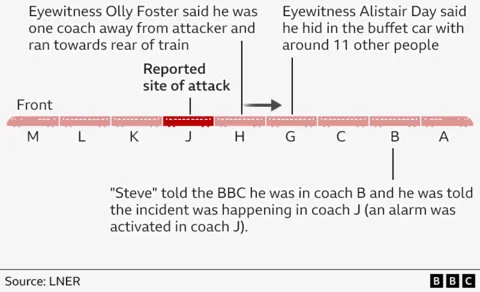
He continued: “A woman came over the tannoy and said, ‘we are aware there is an incident. Just keep yourself safe’, which was scary to hear, because you didn’t know what was going on.
“Then we pulled into a station. I think everybody assumed it was Stevenage, because that was the next scheduled stop.
“Everyone just started to kind of run and then pile off the train, and then everyone just, there’s a bit of a panic, and everyone ran through the station forecourt.
“We ran out into the car park and ran up a hill and kind of out on to the road, and then we bumped into two or three young girls.
“We ran to someone’s house, and we hammered on all the doors and pressed the buzzers, and we got in, and some very kind, early-elderly couple looked after us until it was safe to leave.
“The kids are very shaken up by it, but dealing with it very well.”
Whiskey bottle
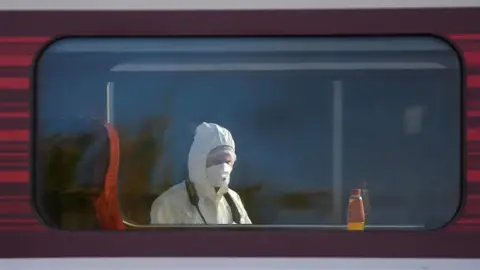
Olly Foster, a passenger on the train, told the BBC he initially heard people shouting “run, run, there’s a guy literally stabbing everyone”, and believed it might have been a Halloween related prank.
He said within minutes, people started pushing through the carriage, and he noticed his hand was “covered in blood” as there was “blood all over the chair” he had leaned on.
An older man “blocked” the attacker from stabbing a younger girl, leaving him with a gash on his head and neck, Mr Foster said.
Passengers around him used jackets to try to staunch the bleeding.
He added that the only thing people in his carriage could use against the attacker was a bottle of whiskey, leaving them “staring down the carriage” and “praying” that he would not enter the carriage.
Although it lasted 10-15 minutes in total, Mr Foster says the incident “felt like forever”.
Describing the scene when he got off the train, he said: “There were three people bleeding severely. One guy was holding his stomach and there’s blood coming from his stomach and going down his leg.
“He was going ‘help, help, I’ve been stabbed’.”
The train’s only other scheduled stop before King’s Cross was due to be at Stevenage.
Wren Chambers, who was due to get off in the Hertfordshire town, said they first became aware something was wrong when a man bolted down the carriage with a bloody arm, saying “they’ve got a knife, run”.
Wren said they and a friend ran to the front of the train and saw a man who had collapsed on the floor.
Wren said they felt “stressed and pretty scared” once they knew what was happening, but they were eventually able to get off the train unharmed.
“There was quite a lot of blood on the train, there was some on my bag, some on my jeans,” she told BBC Radio 5 Live.
“As soon as the train stopped and people got off most of them ran outside trying to get away from it, because we knew the attacker was still inside on the train.”
London Underground worker Dean McFarlane told the BBC that he saw the train pull into Huntingdon railway station at 20:00 with a passenger bleeding.
He said that on arrival, he saw multiple people running down the platform bleeding, with one man in a white shirt “completely covered in blood”.
He said he grabbed people and told them to leave the station, and tried to assist passengers who he believed were having panic attacks.
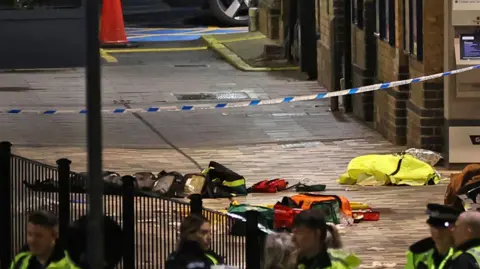
Follow Cambridgeshire news on BBC Sounds, Facebook, Instagram and X.
UK News
Diversity Festival 2025 Successfully Celebrated at Dulwich College

PRESS RELEASE
Diversity Festival London 2025
Dulwich College Great Hall – 22nd November 2025
London successfully hosted one of its most significant multicultural events of the year as the Diversity Festival 2025 took place at the Great Hall of Dulwich College on Saturday 22nd November 2025. The Festival brought together international dignitaries, parliamentarians, mayors, councillors, community leaders, cultural organisations, artists, and guests from more than 30 global cultures in a remarkable celebration of unity, heritage, and global friendship.
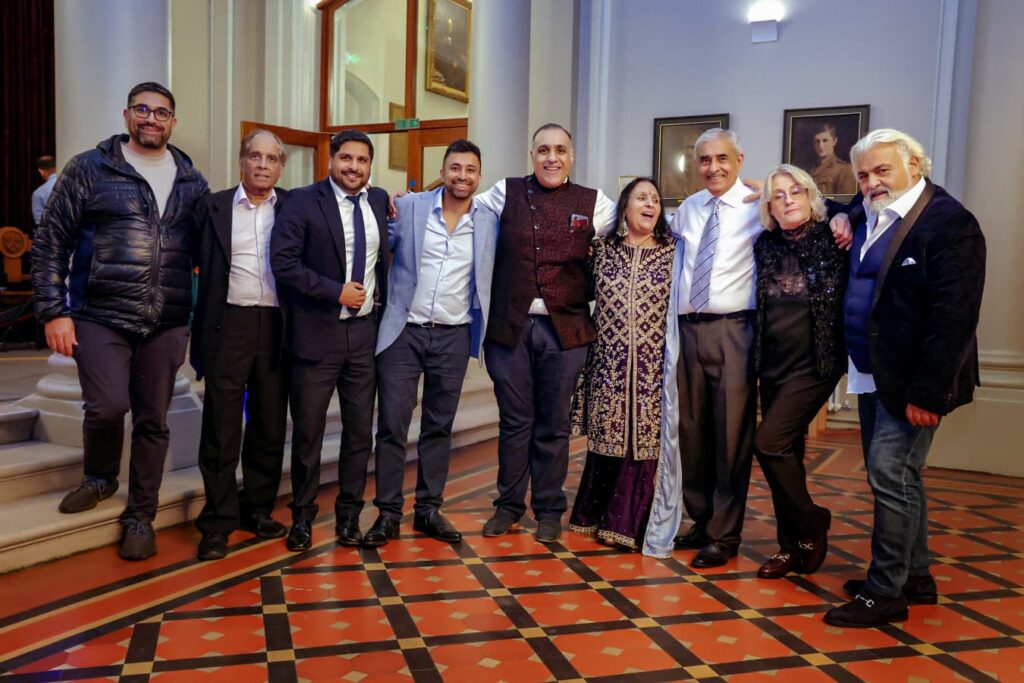
Organised by the Overseas Friends of India (OFI) Under the Leadership of Chairman Mr Sunil Chopra.
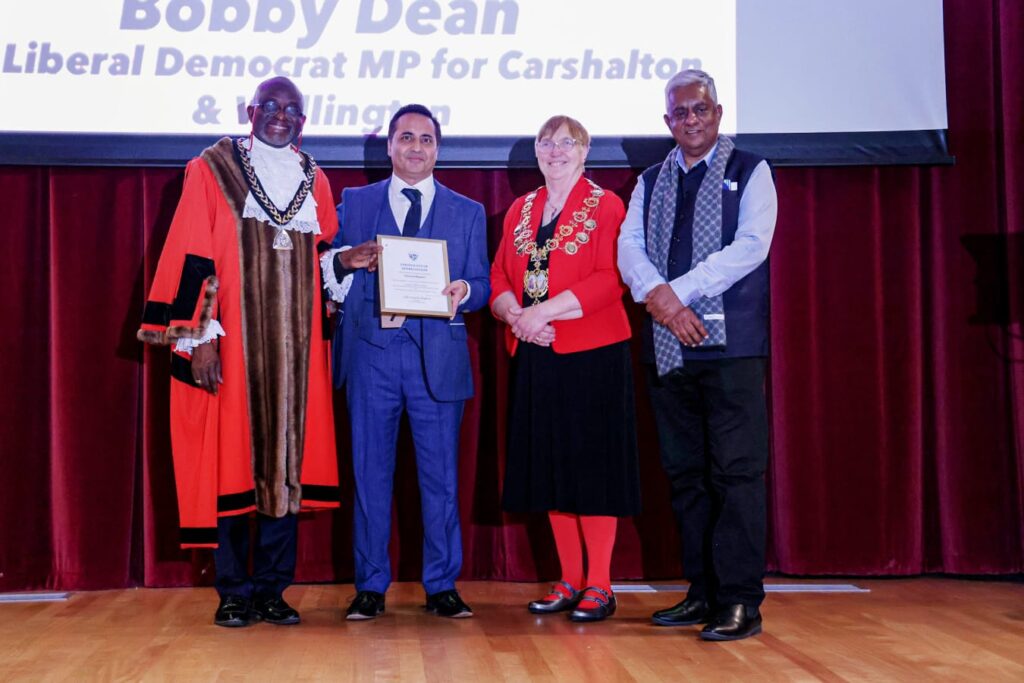
The Festival was organised by the Overseas Friends of India (OFI) under the leadership of its Chairman, Mr Sunil Chopra — a highly respected British-Indian civic leader. Mr Chopra, who has twice served as Mayor of the London Borough of Southwark and is widely recognised as the first Hindu Mayor of any London borough since Indian independence, played a central role in bringing communities together.
Distinguished Leaders in Attendance.
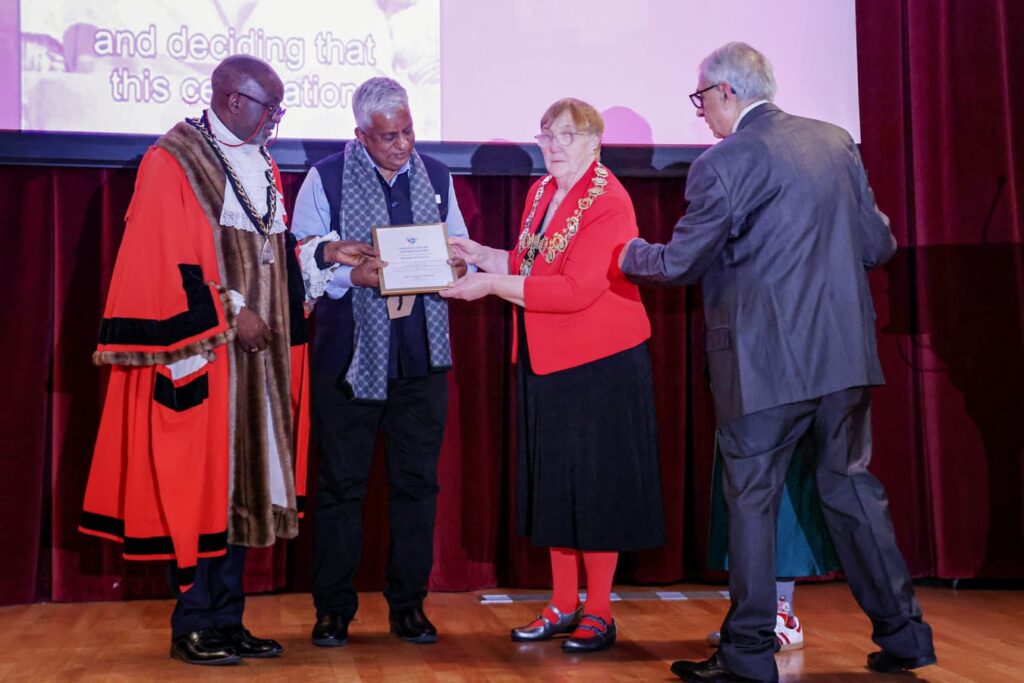
The event was honoured by the presence of:
Former UK Parliament
• Mr Virendra Sharma, former Member of Parliament and long-standing advocate for diversity and UK–India relations.
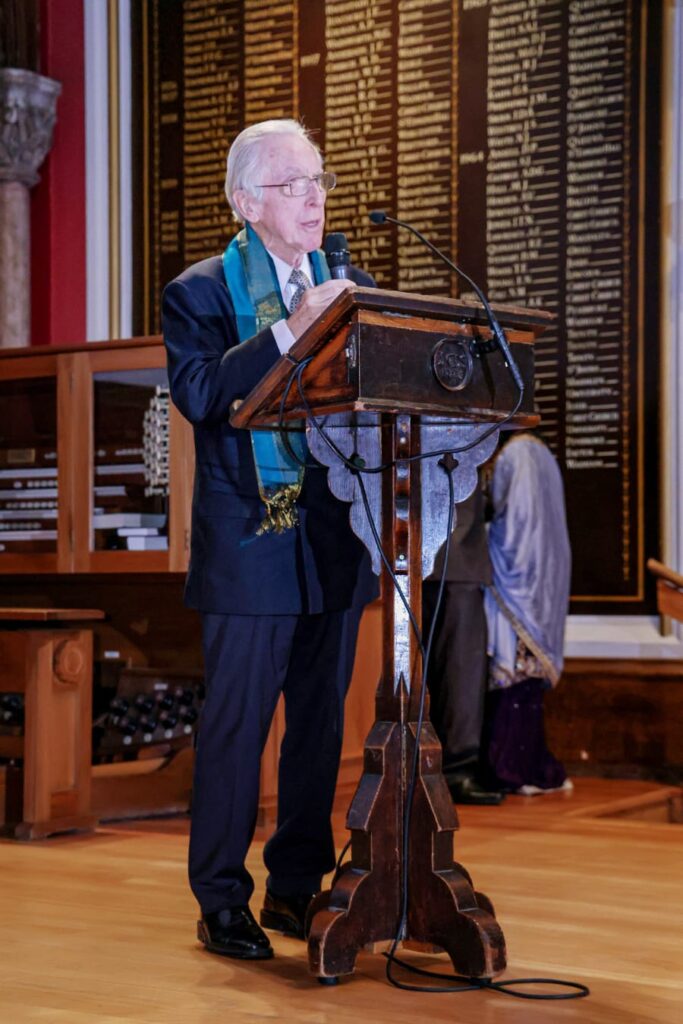
Legal, Political & Civic Leadership
• Lord Brennan KC, distinguished barrister and international legal figure.
• Mayors from multiple London boroughs, demonstrating pan-London unity.
• Councillors from across Greater London, representing the capital’s civic leadership.
International Guests
• Sri Naga Raju, Member of the Legislative Council (MLC), Karnataka, India.
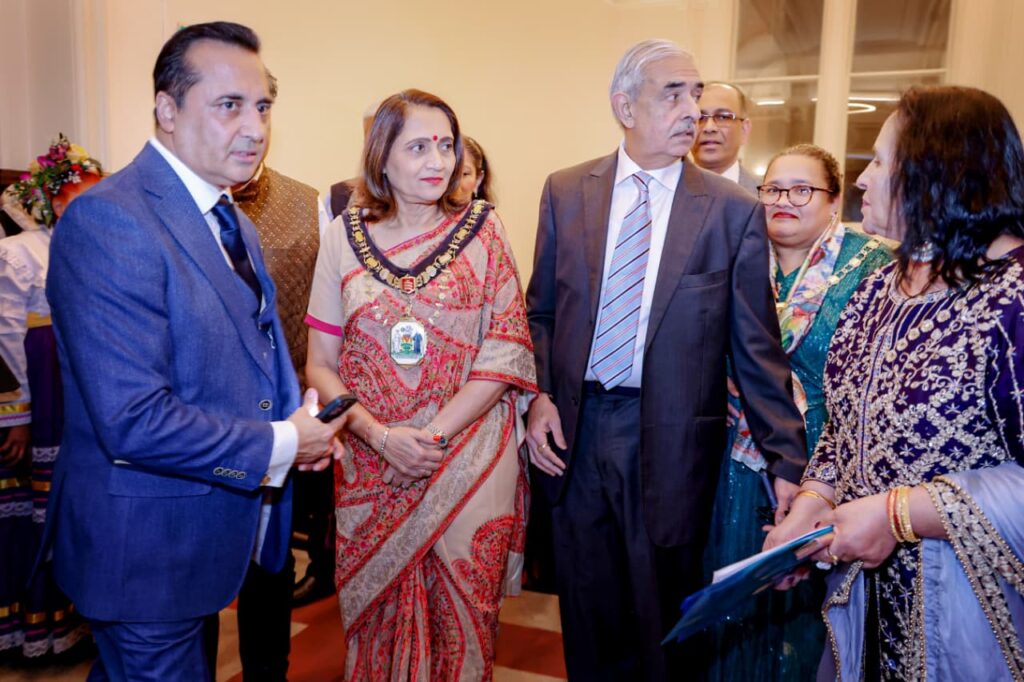
• Diaspora communities from India, Nepal, Africa, the Caribbean, East Asia, and Europe.
In total, more than 180 distinguished guests participated.
Messages of Goodwill From Across the World
The Festival received an outpouring of goodwill messages from senior leaders and faith representatives.
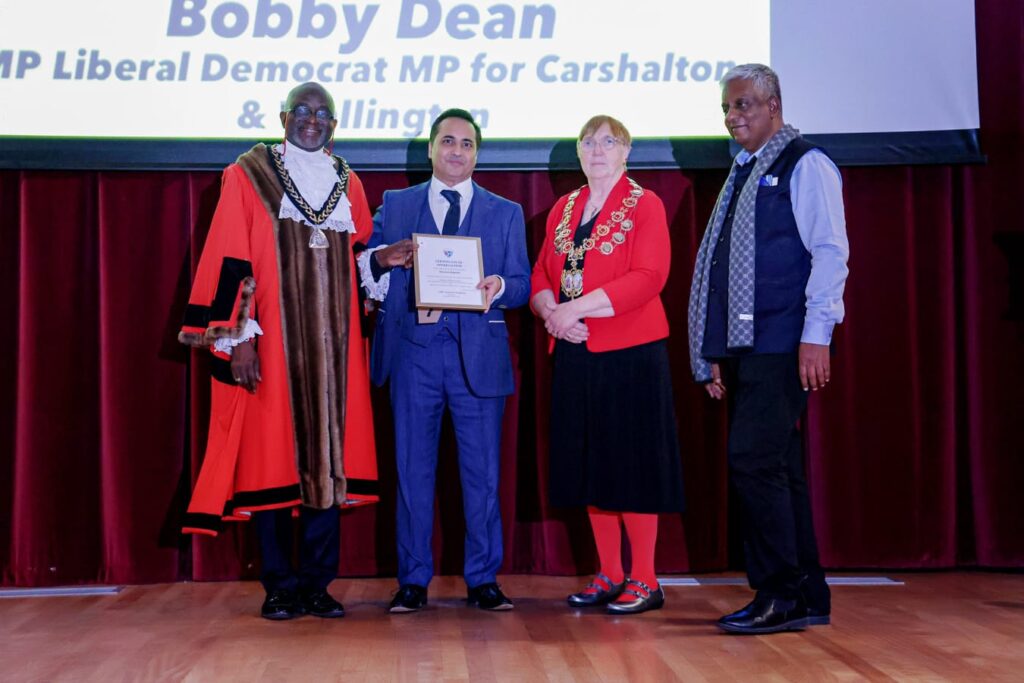
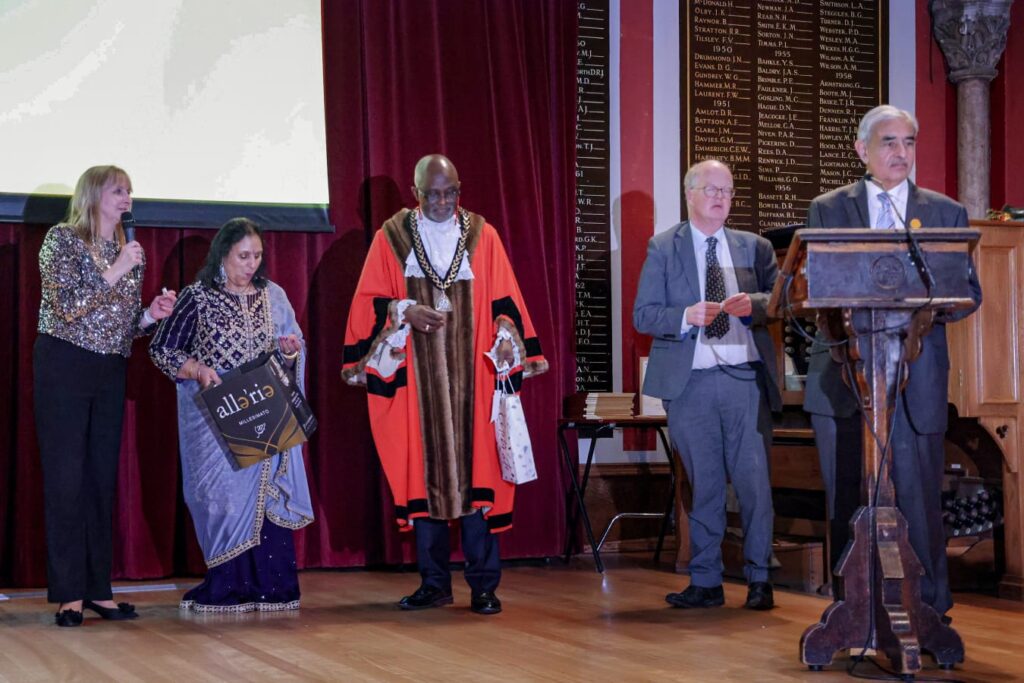
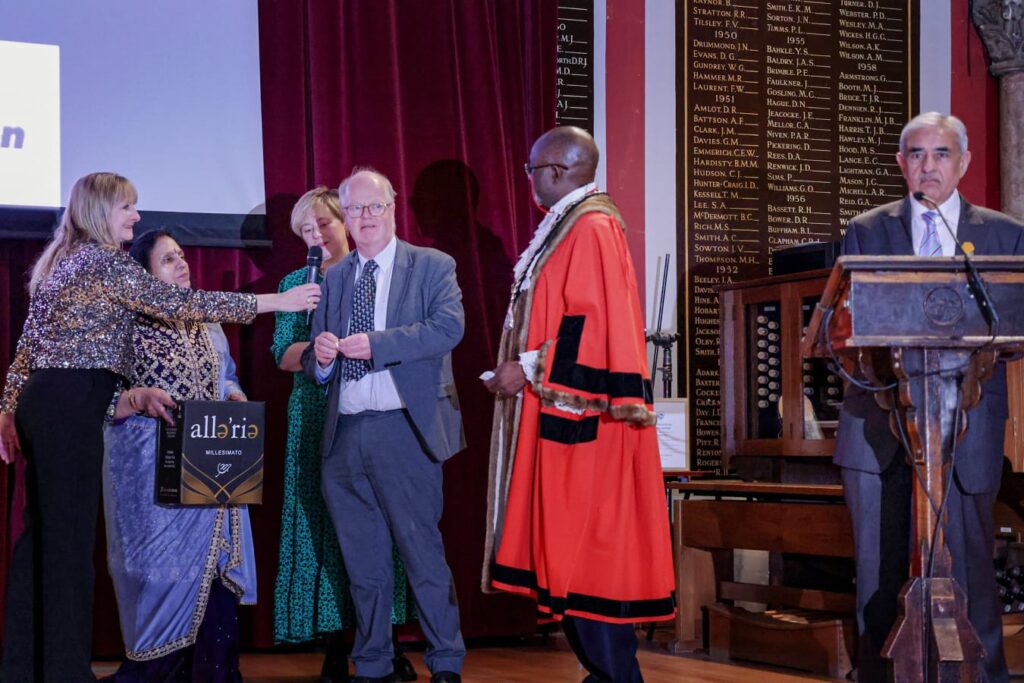
A particularly notable message came from:
Shri H. K. Patil
Hon’ble Minister for Law, Justice, Human Rights, Parliamentary Affairs, Legislation & Tourism, Government of Karnataka, India.
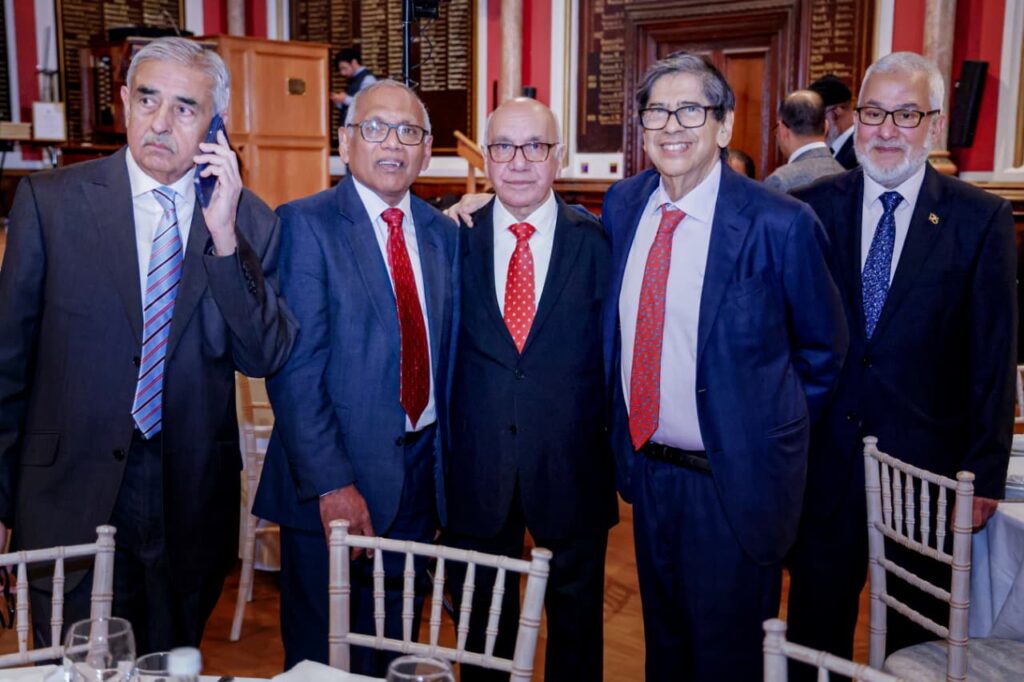

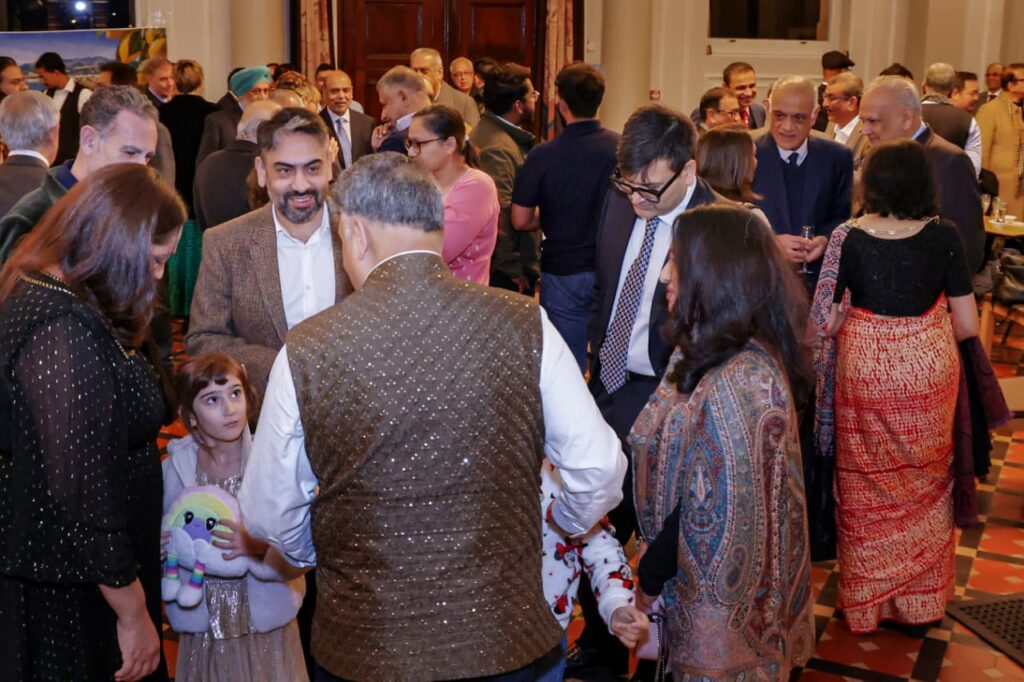

Writing from Vidhana Soudha, Bengaluru, Shri Patil commended the Festival’s mission of cultural diplomacy and global unity, praised the leadership of Mr Sunil Chopra, and conveyed the Government of Karnataka’s appreciation.
Additional blessings and messages were sent by international dignitaries, faith leaders from Hindu- Sikh, MPs .These messages highlighted the Festival’s international significance.
A Successful Evening of Culture, Performance & Global Friendship
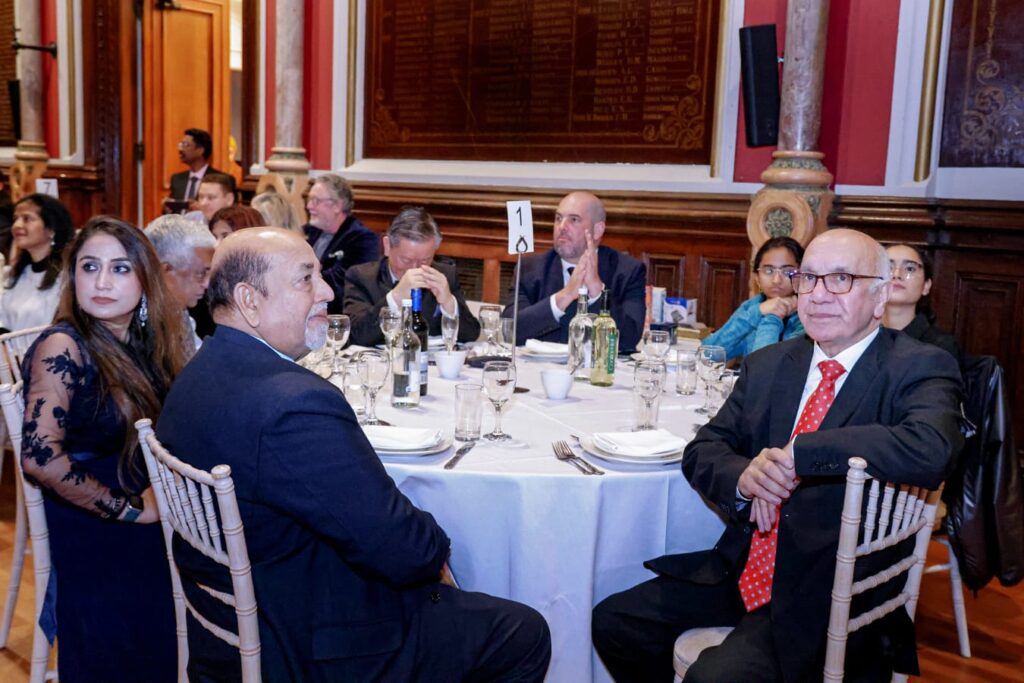
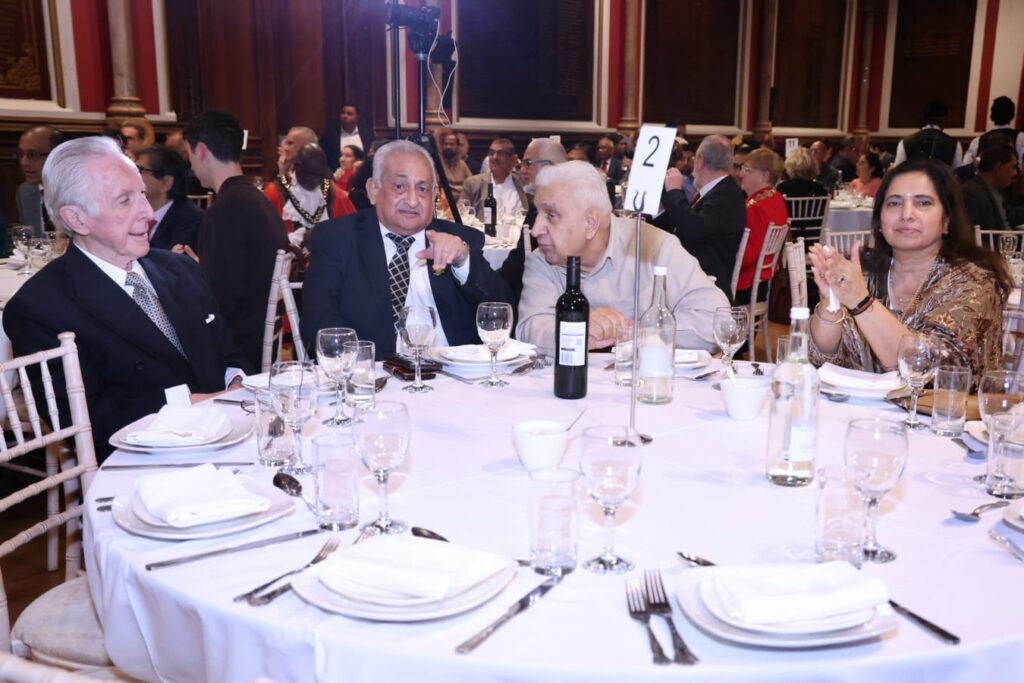
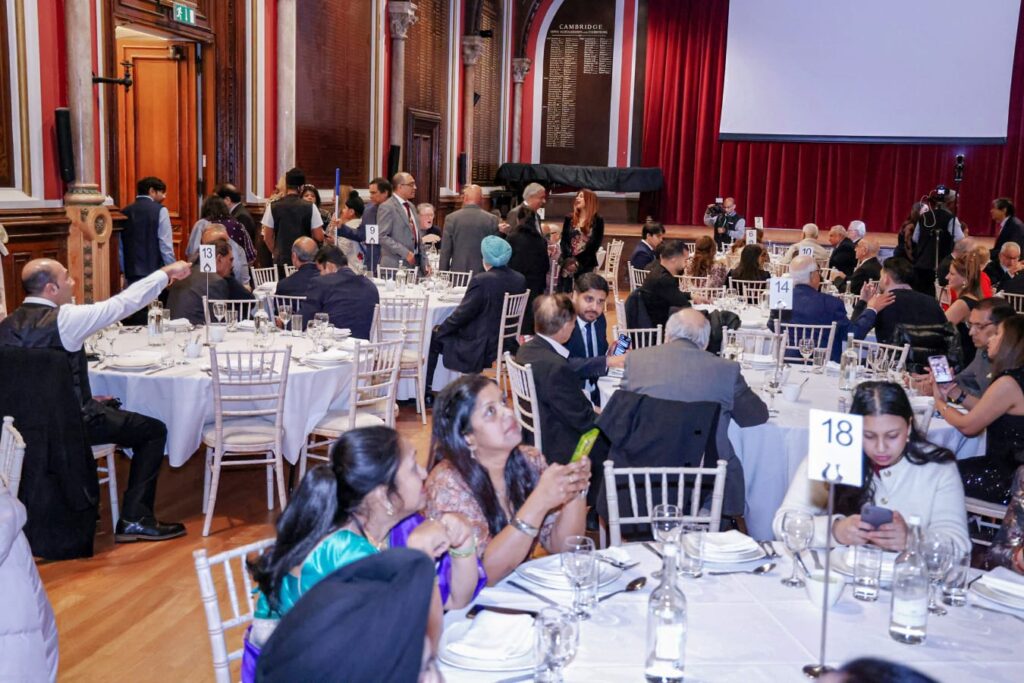
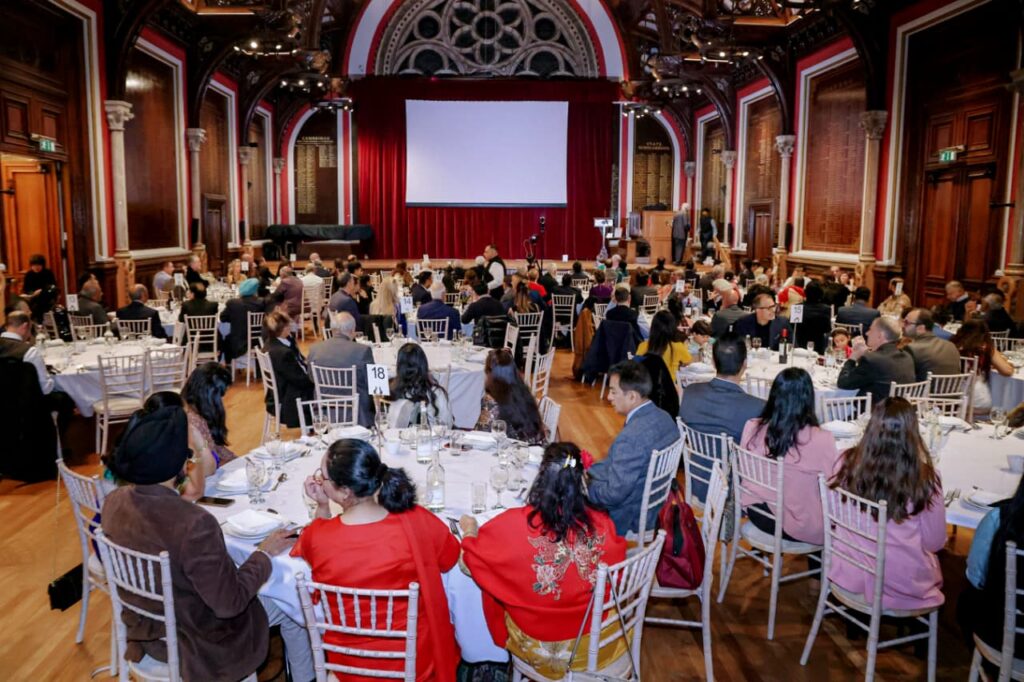
The evening featured:
• International music and dance performances.
• Cultural showcases representing global traditions.
• Speeches on unity, peace and multicultural identity.
• A formal banquet served within the historic Great Hall.
• Networking between diplomatic, political, business, and community leaders.
Media Contact
Diversity Festival London 2025 – Media Desk
Email: [email protected] 07930343360
UK News
New Eurasia Policy Council Launches in UK Parliament, Aims to Forge Bridges on Geopolitics and Climate

LONDON (Ruby Hyder) – A major new voice in British foreign policy emerged yesterday with the formal launch of the Eurasia Policy Council (EPC), an independent think tank dedicated to the geopolitics, economics, and environmental security of Central Asia and the wider Eurasian region.
The high-profile inauguration, hosted by the Independent Media Group UK, was held in the historic River Room of the House of Lords under the patronage of Lord Ghorban Hussein. The event drew a distinguished assembly of peers and MPs, serving and former diplomats, leading British academics, and executives from energy, mining, and infrastructure firms. The gathering also featured senior delegations from Türkiye, Azerbaijan, Kazakhstan, Uzbekistan, Kyrgyzstan, Tajikistan, and Iran, signaling the Council’s ambition to act as a genuine bridge between London, Brussels, and the rapidly evolving Eurasian space.

A Platform for a Complex Era
The EPC establishes itself as a non-partisan, evidence-based institution at a time of escalating geopolitical tensions, economic volatility, and accelerating climate impacts. Its mission is to provide rigorous analysis and foster strategic dialogue to address the region’s most pressing challenges.

In his keynote address, Lord Qurban Hussain described Eurasia as “standing at the crossroads of the world’s most acute challenges – from great-power competition and fragile supply chains to the existential threat of climate change.” He praised the EPC for creating “a neutral, expert-led platform that will allow policymakers, scholars and business leaders to confront these issues with intellectual rigour and mutual respect.”

Strategic Pillars and Climate Focus
The Council has outlined a four-pillar strategy to guide its work:
• Rigorous Research: Conducting peer-reviewed analysis on geopolitical and economic trends.
• High-Level Dialogue: Facilitating diplomatic and track-1.5 dialogue between the UK, EU, and Eurasian states.
• Sustainable Investment: Promoting green technology transfer and responsible economic partnerships.
• Climate Resilience: Building stability through a dedicated focus on transboundary water management, renewable energy, and disaster-risk reduction.

Speakers unanimously emphasized that climate change is not a peripheral issue but a central driver of instability and opportunity. Dr. Robert Hamilton, an authority on climate security, stated, “The EPC’s decision to place climate resilience at the heart of its agenda is both courageous and necessary.” He noted that water scarcity in key basins and glacial retreat are already reshaping the region’s geopolitical landscape.

Economic and Strategic Imperatives
The economic potential of Eurasia was a key theme. Afzal Khan MP welcomed the initiative as “timely and essential,” noting the EPC will help Britain build “deeper, more resilient relationships with a region that is vital for energy security, critical minerals, and the future of the rules-based international order.”
Echoing this, strategist Salman Sheikh highlighted that “Eurasia is not only a geopolitical pivot but an emerging hub of green energy, rare-earth elements and sustainable transport corridors.” He affirmed the EPC’s role in championing “evidence-based partnerships that deliver inclusive growth rather than zero-sum competition.”
A Long-Term Commitment
Speaking at the event’s close, Founders of EPC, Raza Syed and Prof.Shabnam Delfine ,announced the launch the beginning of “a long-term British and European commitment to understanding and engaging with Eurasia not as a distant periphery, but as a vital partner in solving shared global challenges.”
The Council has announced an ambitious initial program, with its first major report on water security in Central Asia slated for Spring 2026 and an inaugural annual conference in London next autumn. By positioning itself at the intersection of policy, commerce, and environmental security, the Eurasia Policy Council aims to become an indispensable actor in the UK’s foreign-policy ecosystem, navigating the complexities of a region at the heart of tomorrow’s global challenges.
UK News
King to strip Andrew of his final military title, minister says

The government is “working to remove” Andrew Mountbatten Windsor’s last honorary military title at the King’s request, the defence secretary has said.
John Healey said King Charles had “indicated that’s what he wishes”.
Andrew, who was stripped of his title as a prince on Thursday, retained his rank as a Vice Admiral in the Royal Navy after giving up his other military positions in 2022.
Healey told the BBC’s Sunday with Laura Kuenssberg: “This is a move that’s right, it’s a move the King has indicated we should take and we’re working on that at the moment.”
Andrew spent decades in public life as a war hero and prince, but has since suffered a major fall from grace.
The King’s younger brother had a 22-year career in the Royal Navy, and served as a helicopter pilot during the Falklands War.
He also commanded the mine countermeasures vessel HMS Cottesmore.
This week, he lost his last remaining royal titles and privileges following months of pressure over his ties to convicted sex offender Jeffrey Epstein. Andrew has always denied wrongdoing.
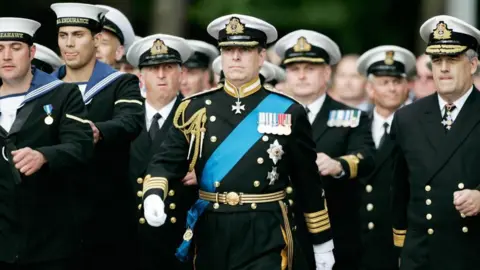
Speaking on Sunday with Laura Kuenssberg, royal author and journalist Valentine Low said this latest move, to lose his final military title, will be a “blow” to Andrew.
“Royals, and particularly Andrew, are very proud and determined to hang onto military titles,” he said.
“It seems the King is intent on taking absolutely everything away from his brother. It’s a flinty eyed ruthlessness he’s displaying.”
Andrew had already returned his other military titles and royal patronages in 2022, and stopped using the title His Royal Highness in an official capacity, after he was accused of sexual abuse in a civil case in the US.
He later settled the case brought against him by Virginia Giuffre, a victim of sex trafficking and abuse by Jeffrey Epstein, who alleged Andrew sexually abused her when she was a teenager – something Andrew has consistently denied.
Military titles that Andrew lost at the time included colonel of the Grenadier Guards – one of the most senior infantry regiments in the British army.
He also lost several overseas honorary roles, including colonel-in-chief of The Royal Highland Fusiliers Of Canada, and colonel-in-chief of the Royal New Zealand Army Logistic Regiment.
-

 Europe News12 months ago
Europe News12 months agoChaos and unproven theories surround Tates’ release from Romania
-

 American News12 months ago
American News12 months agoTrump Expels Zelensky from the White House
-

 American News12 months ago
American News12 months agoTrump expands exemptions from Canada and Mexico tariffs
-

 American News12 months ago
American News12 months agoZelensky bruised but upbeat after diplomatic whirlwind
-

 Art & Culture12 months ago
Art & Culture12 months agoThe Indian film showing the bride’s ‘humiliation’ in arranged marriage
-

 Pakistan News8 months ago
Pakistan News8 months agoComprehensive Analysis Report-The Faranian National Conference on Maritime Affairs-By Kashif Firaz Ahmed
-

 Art & Culture12 months ago
Art & Culture12 months agoInternational Agriculture Exhibition held in Paris
-

 Politics12 months ago
Politics12 months agoUS cuts send South Africa’s HIV treatment ‘off a cliff’












